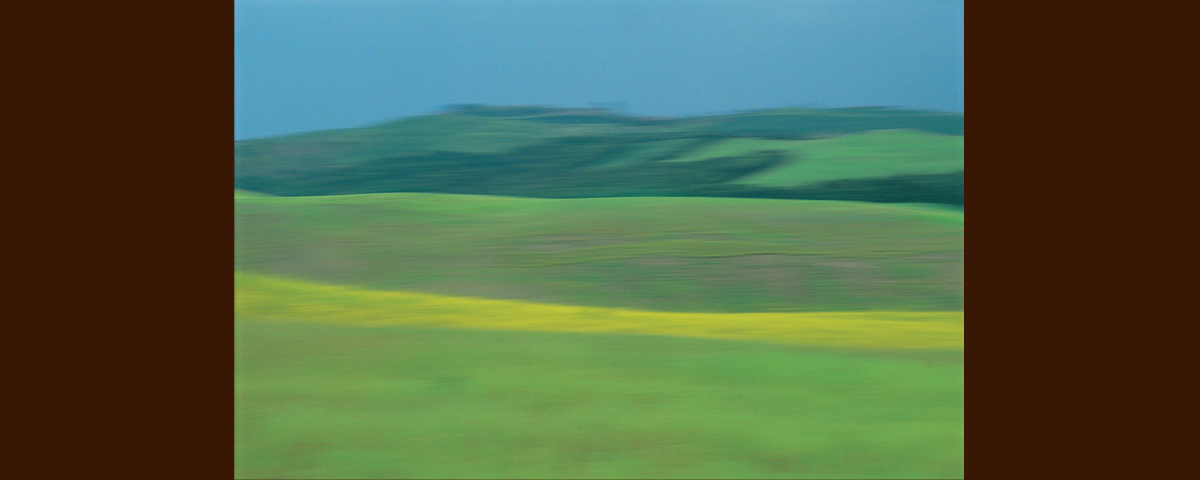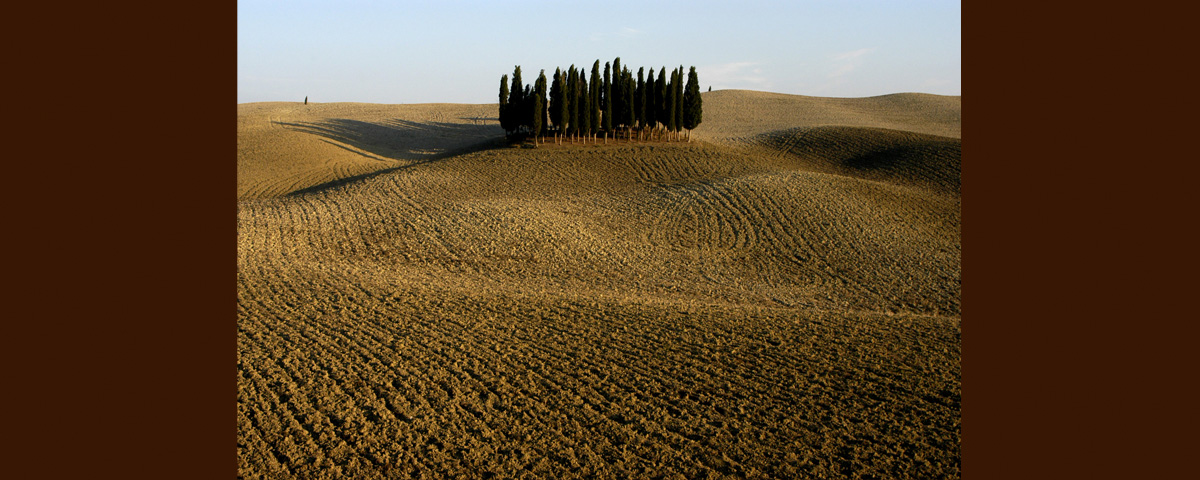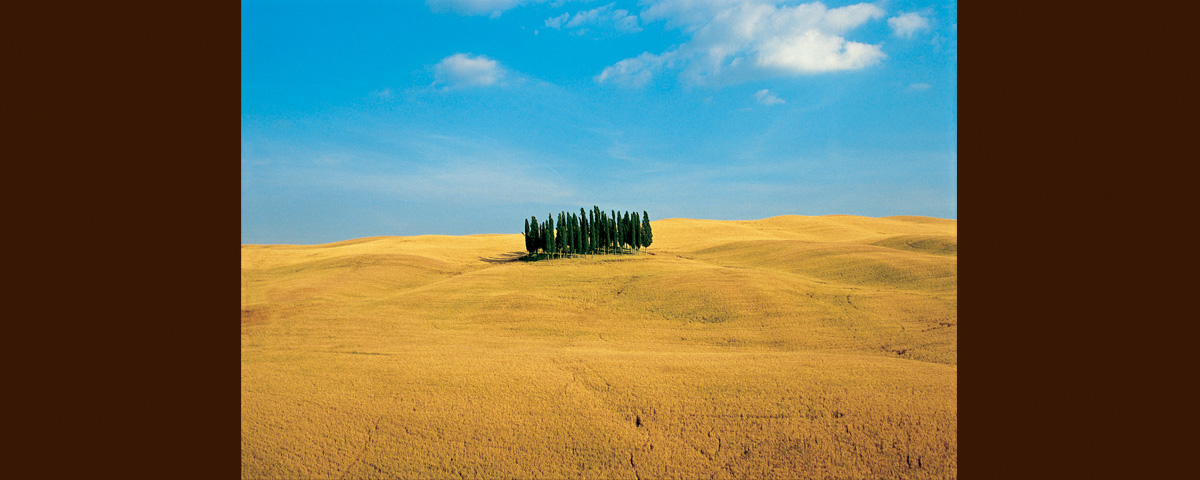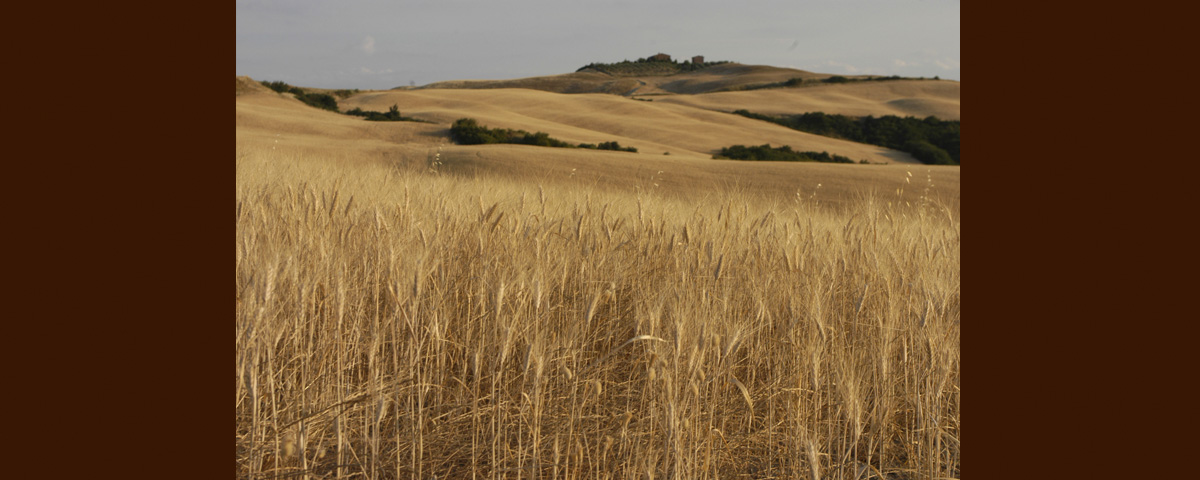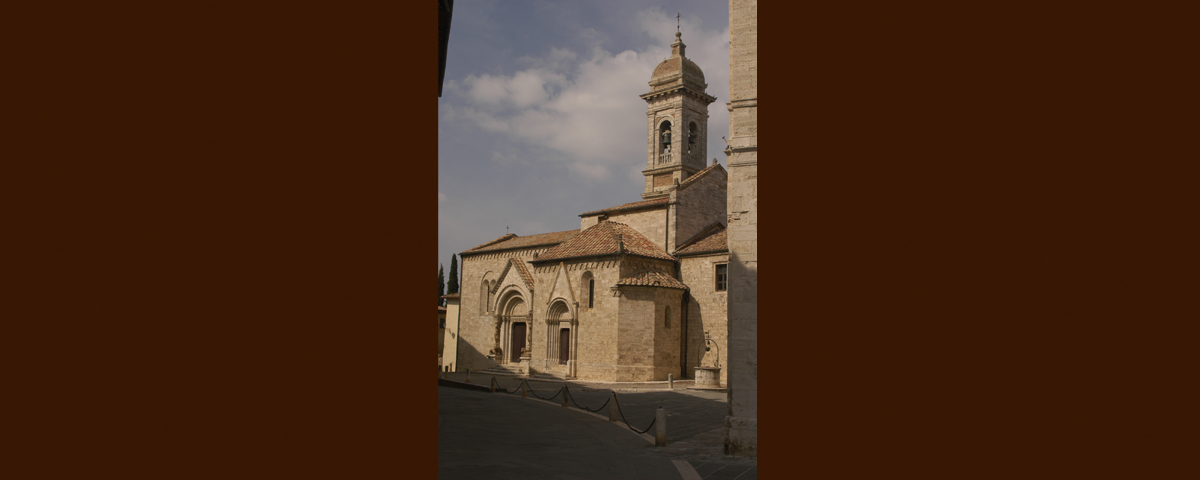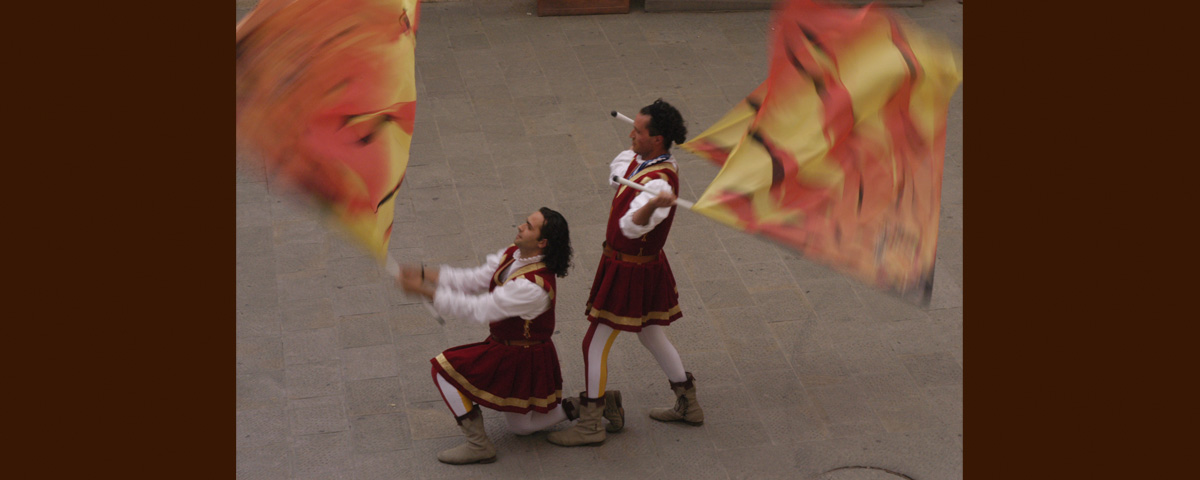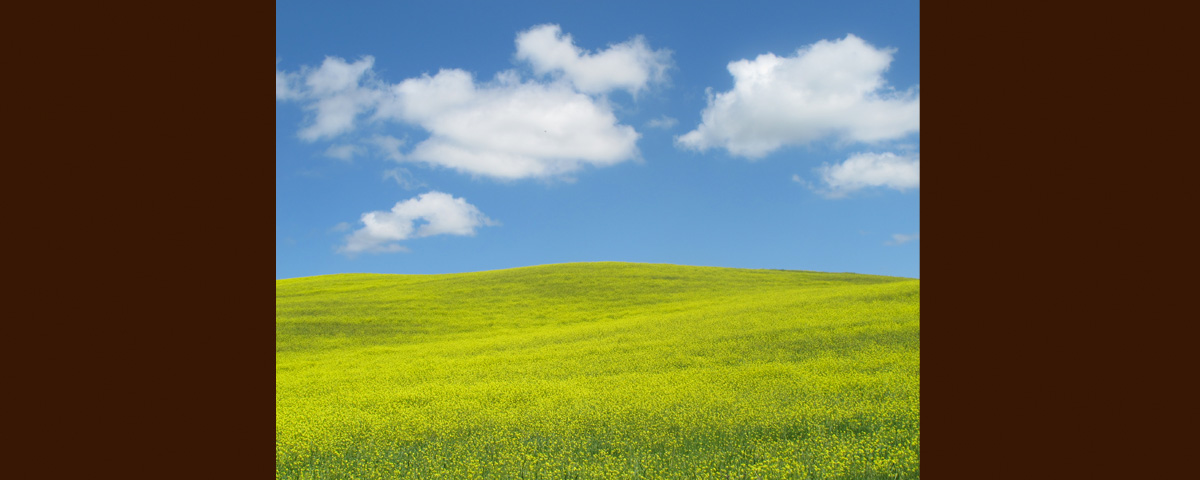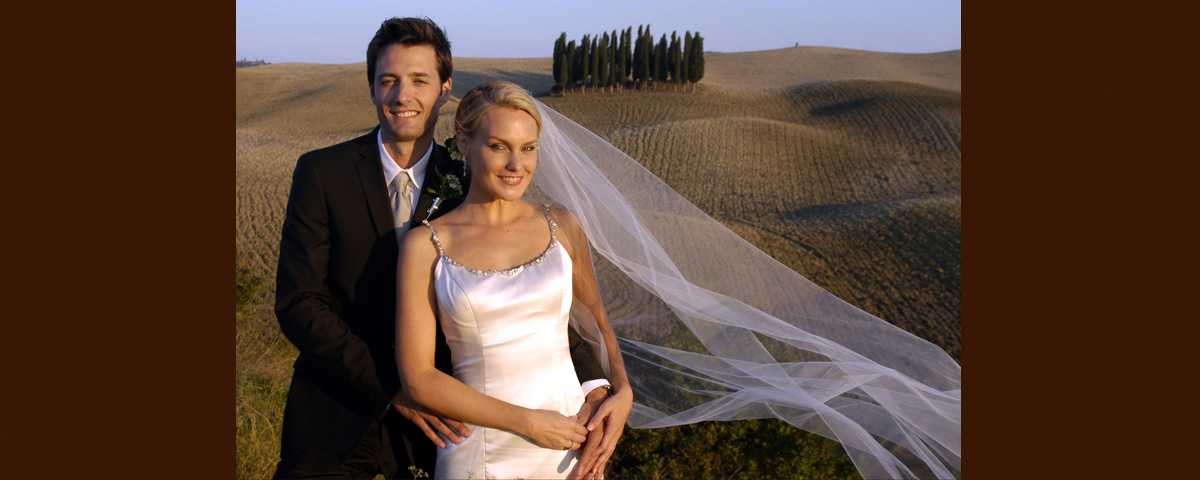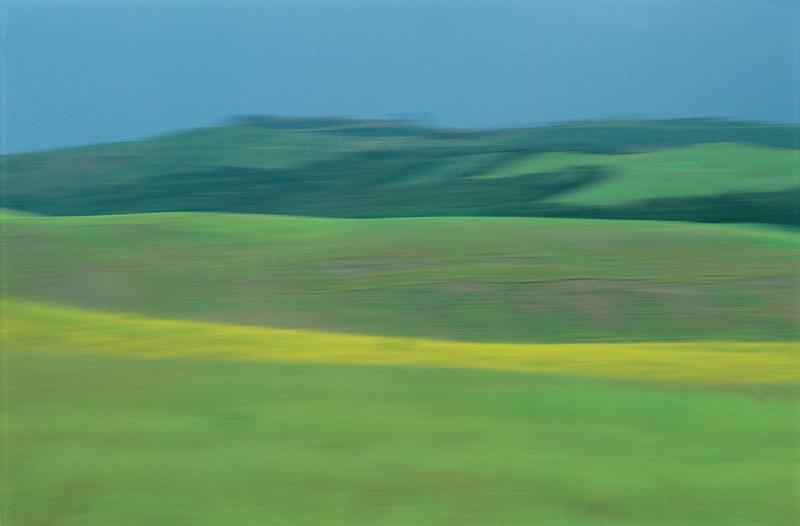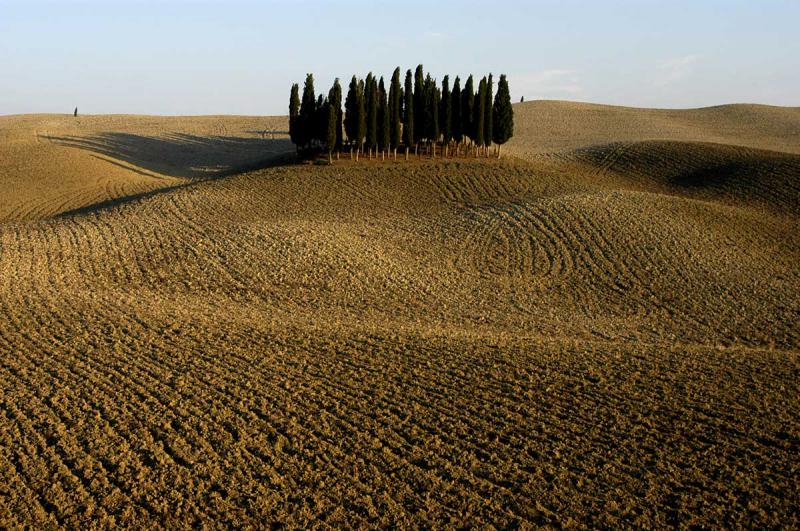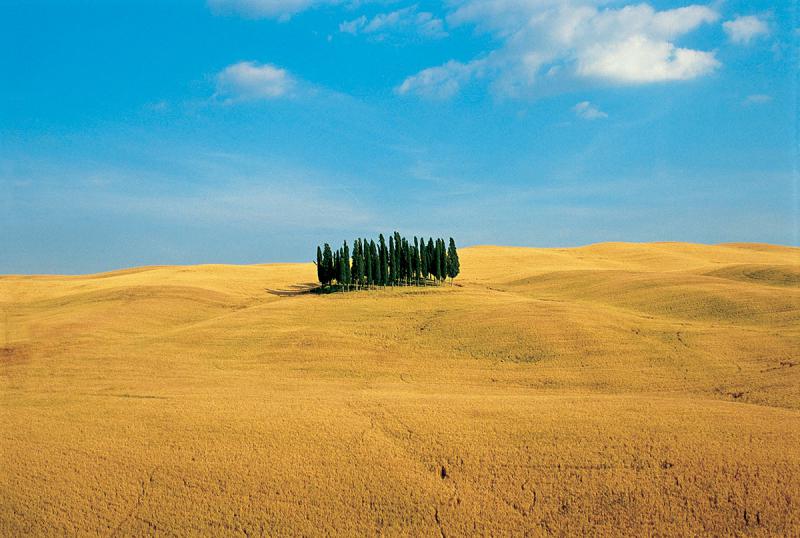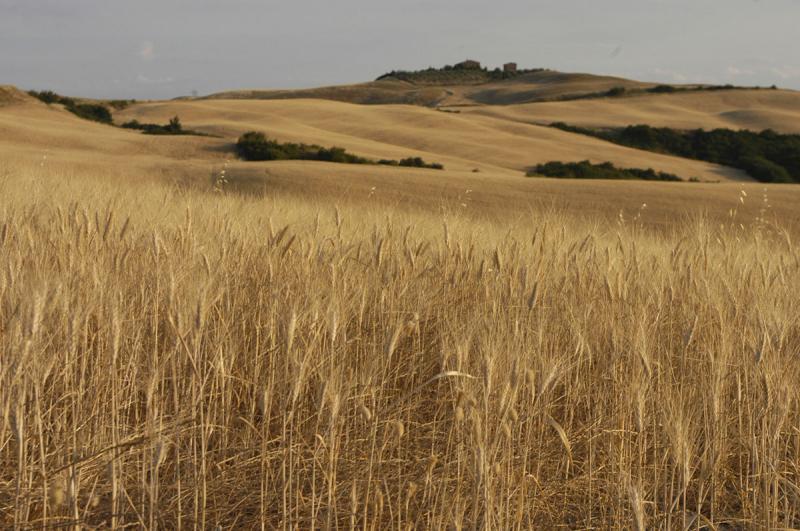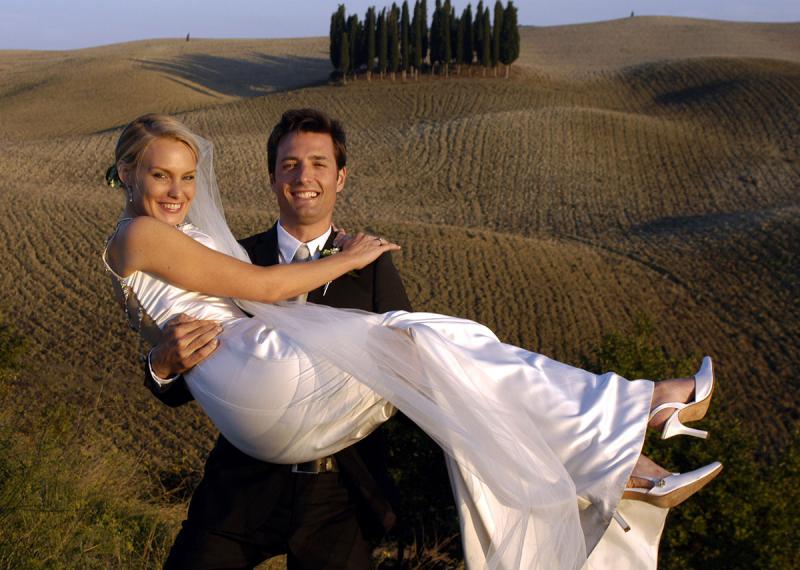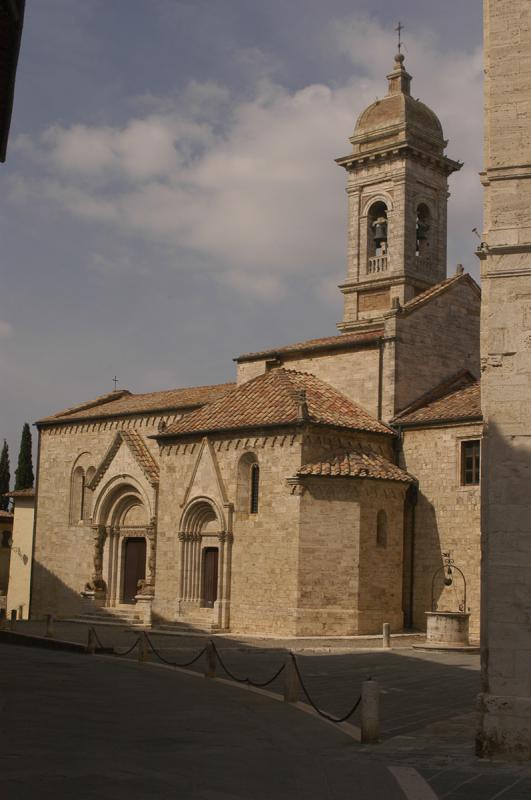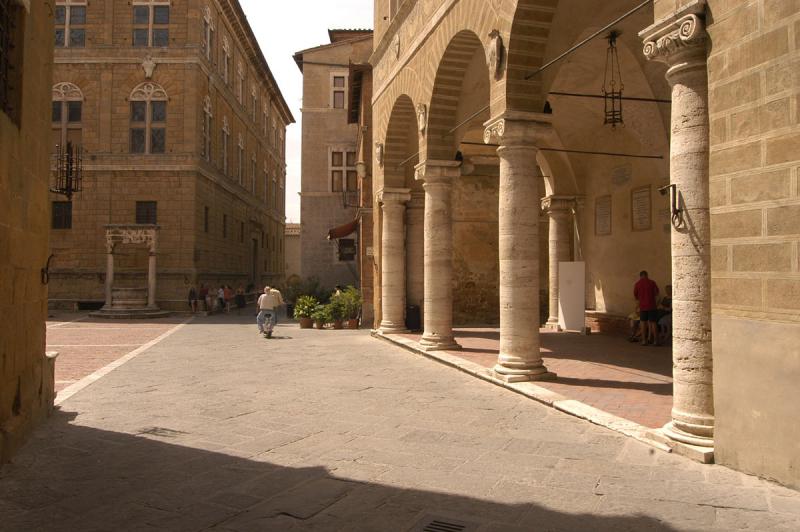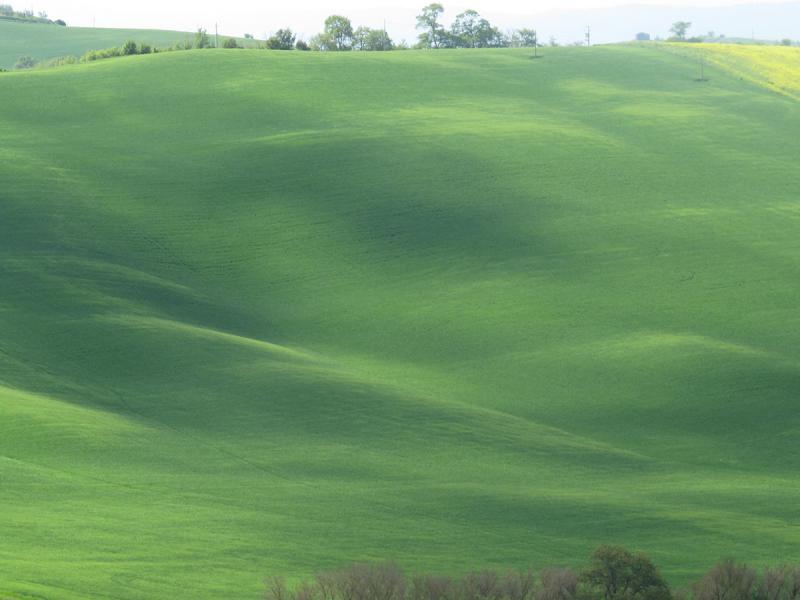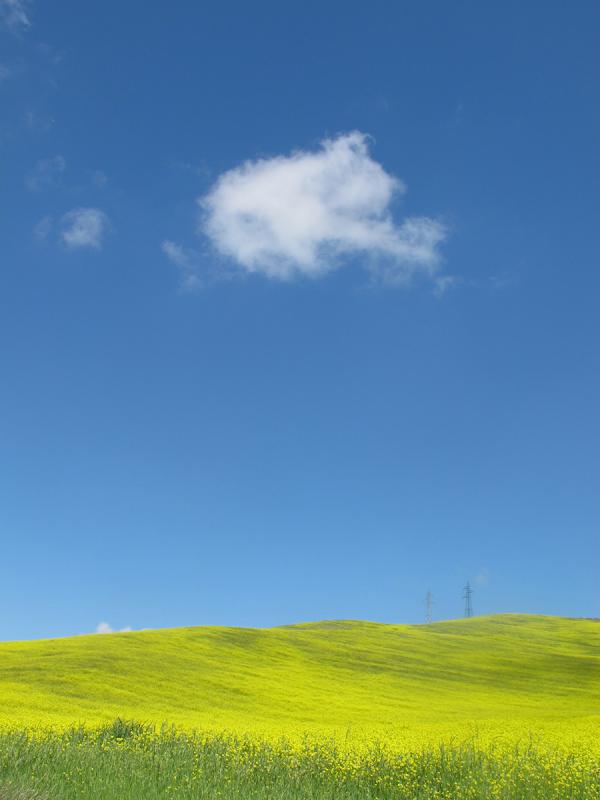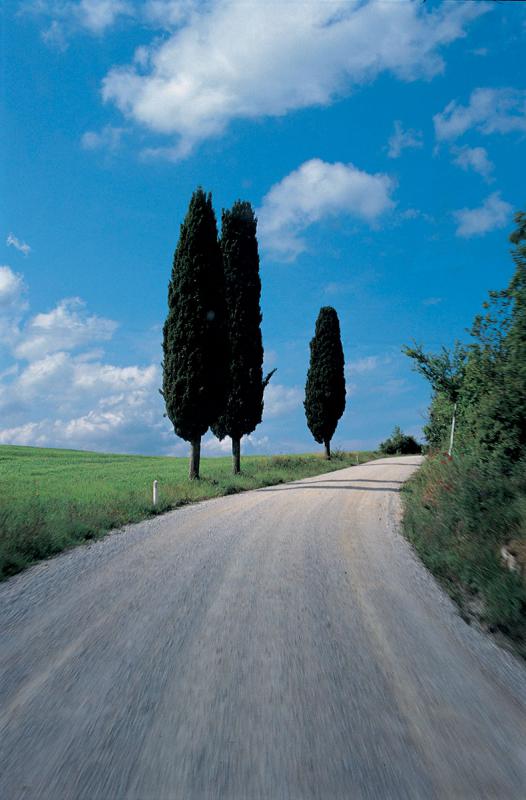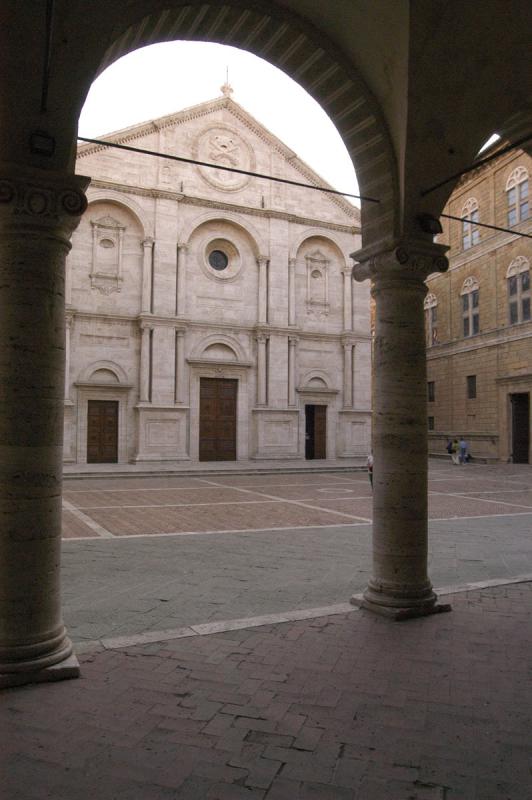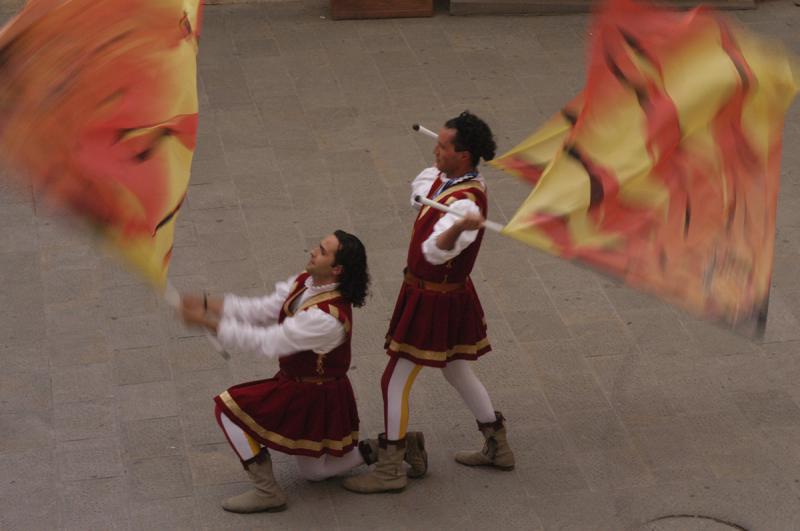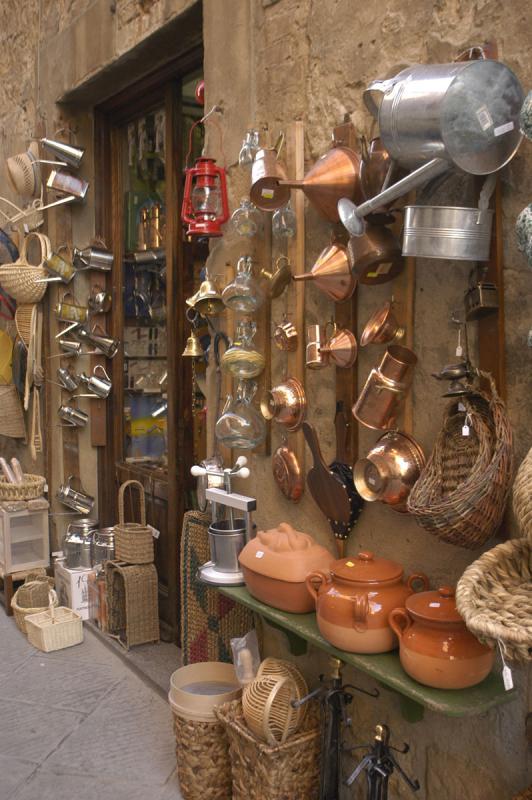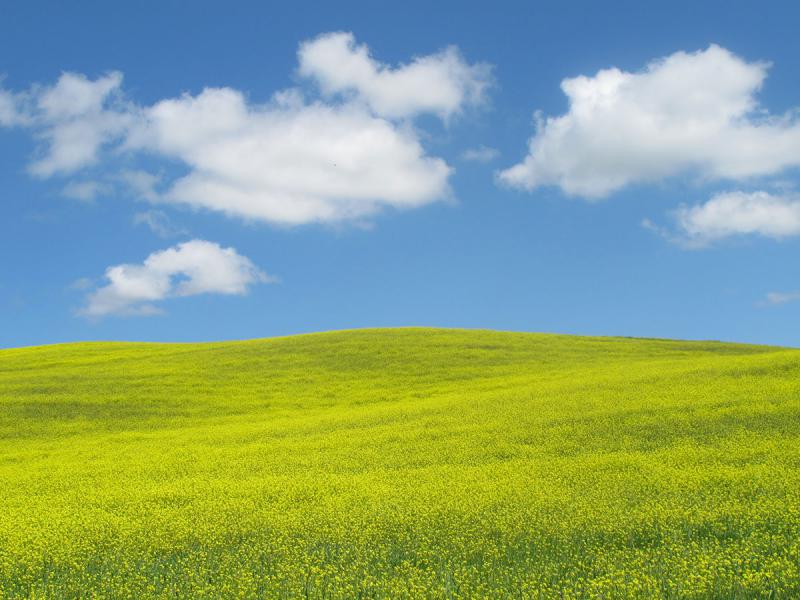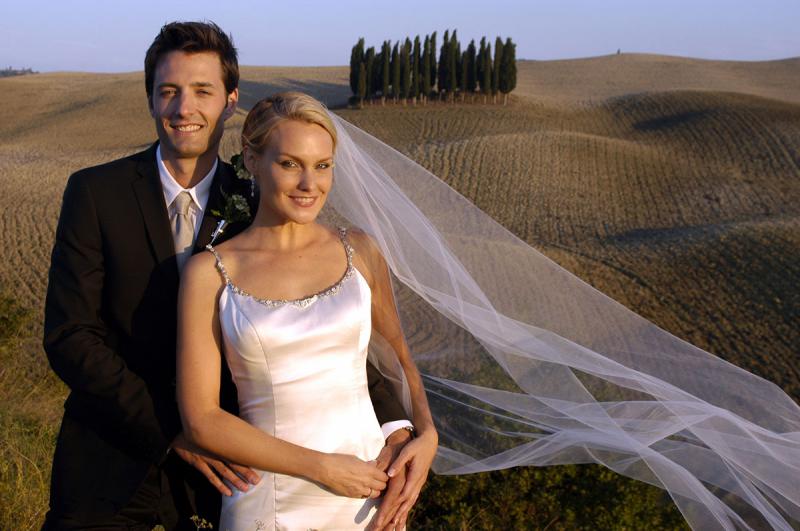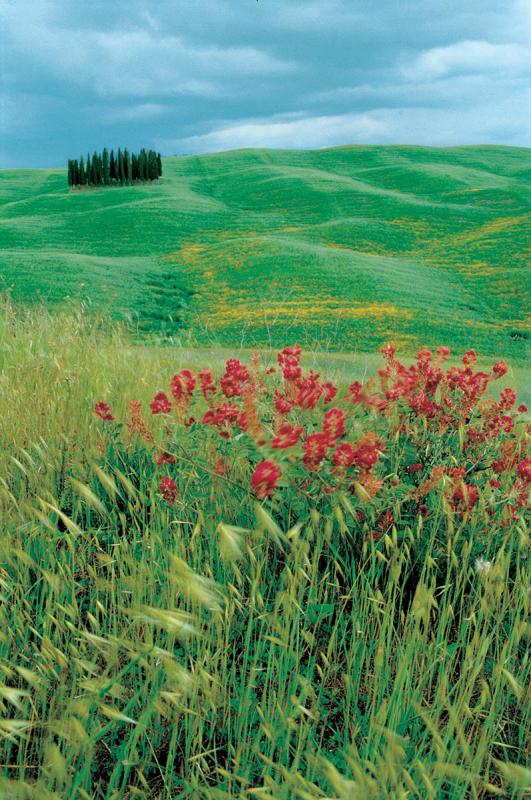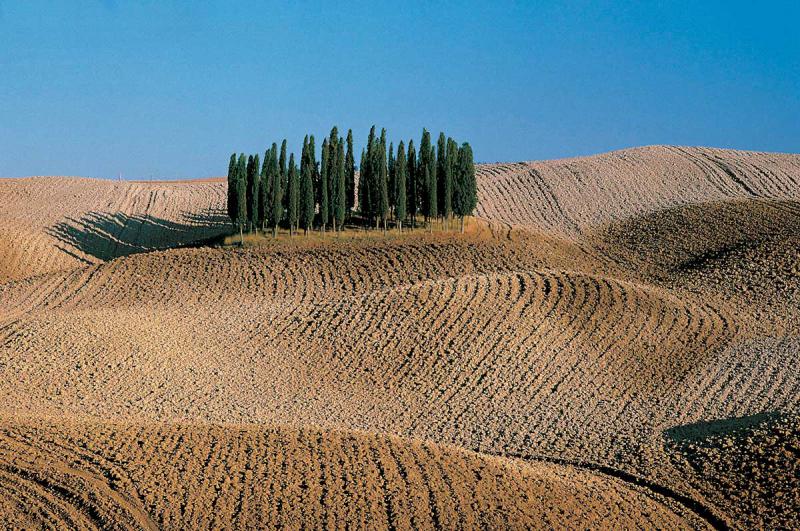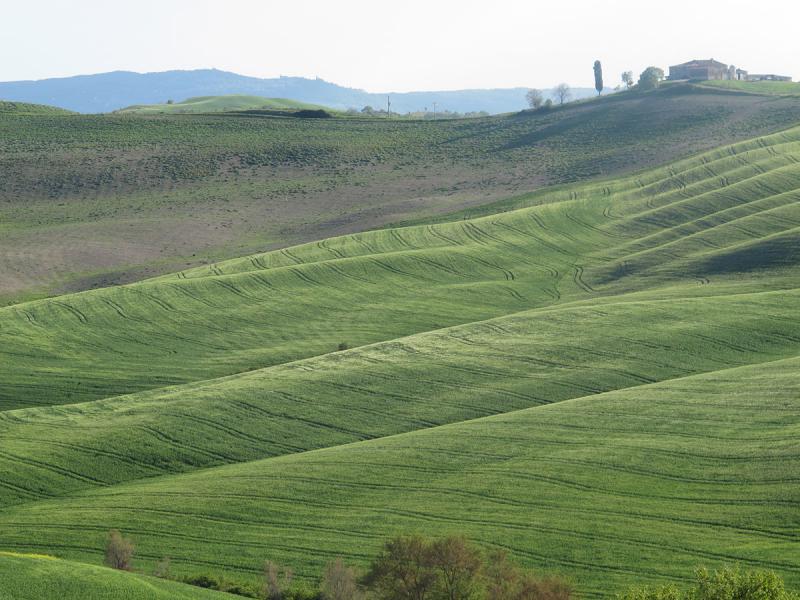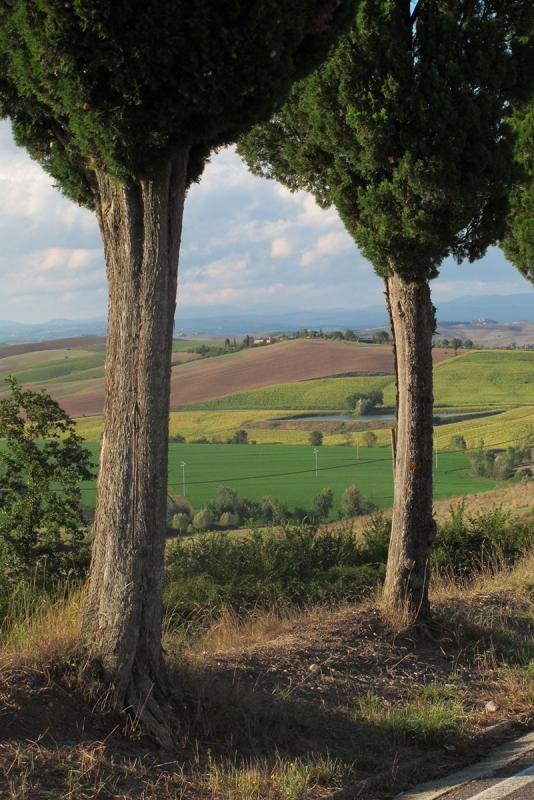Pienza - Crete Senesi
‘Terre di
Siena’, ‘terra di Siena bruciata’ and ‘ocra’ (which translated are ‘siena
earth’, ‘burnt siena earth’) are the Italian names for the various shades of
brown that artists all over the world recognise. Colours made by mixing the
natural pigments of the clay earth from the Crete Senesi, the southern part of
Tuscany, south of Siena.
Millions
of years ago the ‘Crete’ were a seabed on which the ash fell from Monte Amiata,
once an active volcano but no longer so, and that stills overlooks the region.
Even today there are frequent findings of fossilised shells, fish remains or
prehistoric whales when the farmers plough the earth.
Today “le Crete” appears a lunar landscape, metaphysical if seen in
August or September, an undulating sea of “creta” (clay). Long waves of
ploughed land that changes colour every square metre: from grey, to brown, to
ochre, to yellow, to brick. As if it were an enormous Japanese zen garden, the
ploughed furrows snake up and down the hills, twisting back on themselves,
creating fascinating graffiti.
‘Terre di Siena’, ‘terra di Siena bruciata’ and ‘ocra’ (which translated are ‘siena earth’, ‘burnt siena earth’) are the Italian names for the various shades of brown that artists all over the world recognise. Colours made by mixing the natural pigments of the clay earth from the Crete Senesi, the southern part of Tuscany, south of Siena.
Millions of years ago the ‘Crete’ were a seabed on which the ash fell from Monte Amiata, once an active volcano but no longer so, and that stills overlooks the region. Even today there are frequent findings of fossilised shells, fish remains or prehistoric whales when the farmers plough the earth.
Today “le Crete” appears a lunar landscape, metaphysical if seen in August or September, an undulating sea of “creta” (clay). Long waves of ploughed land that changes colour every square metre: from grey, to brown, to ochre, to yellow, to brick. As if it were an enormous Japanese zen garden, the ploughed furrows snake up and down the hills, twisting back on themselves, creating fascinating graffiti.
